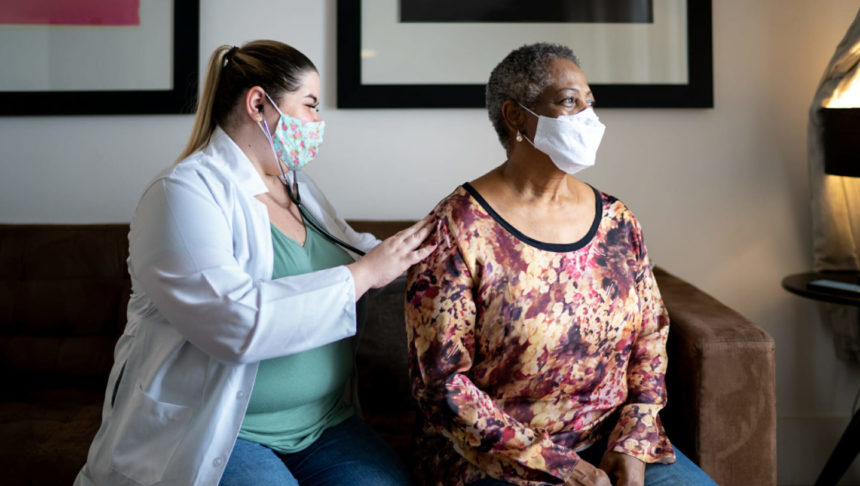
With COVID-19 infections trending downward, federal health officials have begun planning future mitigation strategies with a focus on vaccinations and prevention.
A new strategy, for vaccines at least, appears to be in the works. The Food and Drug Administration’s independent vaccine advisory panel will meet April 6 to discuss considerations for future COVID-19 vaccine booster doses, the agency announced Monday.
The plan is to envision COVID-19 as a virus we live with, like influenza, and “that we prepare for, protect against and treat,” Peter Marks, M.D., Ph.D., director of the FDA’s Center for Biologics Evaluation and Research, said in a statement.
“[P]revention in the form of vaccines remains our best defense against the disease and any potentially severe consequences,” he said.
But some clinicians believe that the public health focus should turn from stopping transmission, to protecting those most likely to become severely ill, according to a report from Kaiser Health News. The elderly and frail top that list, along with people who are immunocompromised, the experts said.
Shift to protecting the elderly
“The goal is not to stop transmission. It’s mainly to protect the vulnerable at this point,” family physician Norman Hearst, M.D., of the University of California-San Francisco, told KHN.
Future COVID-19 strategy should include rapid COVID-19 tests for these patients and fast access to treatment when results are positive, added Luciana Borio, a former FDA and National Security Council official and now senior fellow for global health at the Council on Foreign Relations.
But another expert countered this strategy, saying that it neglects the common problem of patients waiting too long to seek help for respiratory illness. The current antiviral and antibody treatments must be used within days of contracting the SARS-CoV-2 virus to be effective.
U.S. needs clear goals
Public health officials must share clear vaccination goals with the public, according to Borio.
“We need people to understand that protection against all illness is not long-lasting, instead of thinking the vaccine is not working,” she told KHN.
Virus variants are an ongoing concern, the experts added. And there are signs that infections may rise again as the highly transmissible omicron variant BA.2 becomes a dominant strain. But some warn that rushing to capitulate to vaccine makers — who are promoting a repeat booster strategy — is not the answer.
Don’t rush booster decisions
MRNA vaccine makers Pfizer and Moderna have recently applied for second booster shot authorization, for use in seniors in the case of Pfizer and for all adults in the case of Moderna.
“[W]e’re going to be making the drug companies very happy, since our antibodies will go down every four months,” Paul Offit, M.D., of Children’s Hospital of Philadelphia told KHN. A vaccine inventor himself, Offit cautioned against chasing the virus with booster shots.
“What’s our response going to be if we have another variant like omicron that sweeps across people who got two or three doses?” he asked. “Will we accept this, and say, ‘OK, calm down?’”




